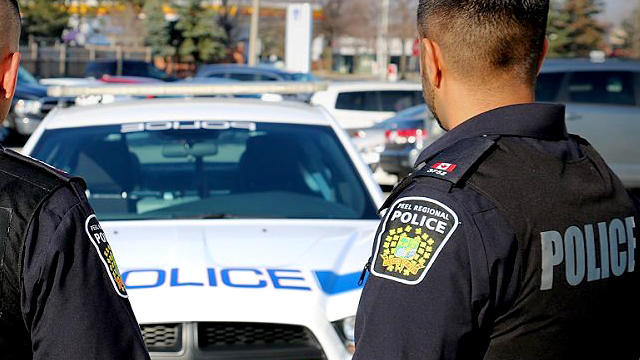Peel Police board take cues from Toronto for proposed diversity committee
Published October 20, 2021 at 3:14 pm

After scrapping a proposed anti-black racism panel, the Peel Police Services Board (PPSB) is looking to tackle systemic racism in policing with a diversity and inclusion committee.
The board will be presented with a draft mandate for the proposed committee on Friday. If established, the committee would focus on identifying and removing systemic “racial inequities in policing.”
A report from PPSB executive director Rob Serpe back in August argued the board didn’t need a proposed anti-black racism panel because similar outreach programs already exist in Mississauga and Brampton.
Instead, the board is looking to form a diversity and inclusion committee to deal with broader systemic inequities experienced by many diverse groups, including the Indigenous and LGBTQ2 communities.
According to the draft, the committee would be a way for police to get advice from the community and stakeholder groups on how to deal with issues relating to “systemic racism, equity, diversity and inclusion.”
The draft proposes the new committee be made up of at least two members of Peel Police Services Board members, and at least one of those would need to be an elected official.
When drafting its mandate, the PPSB looked to the Toronto Police Services Board’s Anti-Racism Advisory Panel, which was established after police shot and killed Andrew Loku in 2015 while responding to a crisis call.
The PPSB’s Diversity and Inclusion Committee’s proposed mandate would be to:
- Focus on identifying and proactively removing systemic barriers and root causes of racial inequities in policing.
- Work closely with community groups, the Ontario Human Rights Commission, Regional and Municipal governments, and provincial and federal ministries across government to identify and make recommendations to eliminate systemic racism and anti-racial bias from policing.
- Recognize that everyone in Peel Region benefits from a police service free from systemic barriers faced by the most disadvantaged communities.
- Acknowledge that racism is experienced differently by various racialized and other groups, including gender identity, creed, class, sexual orientation, etc.
- Meaningfully engage with diverse, Indigenous and LGBTQ2 people to ensure their perspectives and guidance inform police governance and policy.
The committee would hold a minimum of four meetings per year, with no limit on the maximum number of meetings and stakeholder engagements.
The PPSB is the local civilian body that governs the Peel Regional Police.
INsauga's Editorial Standards and Policies

